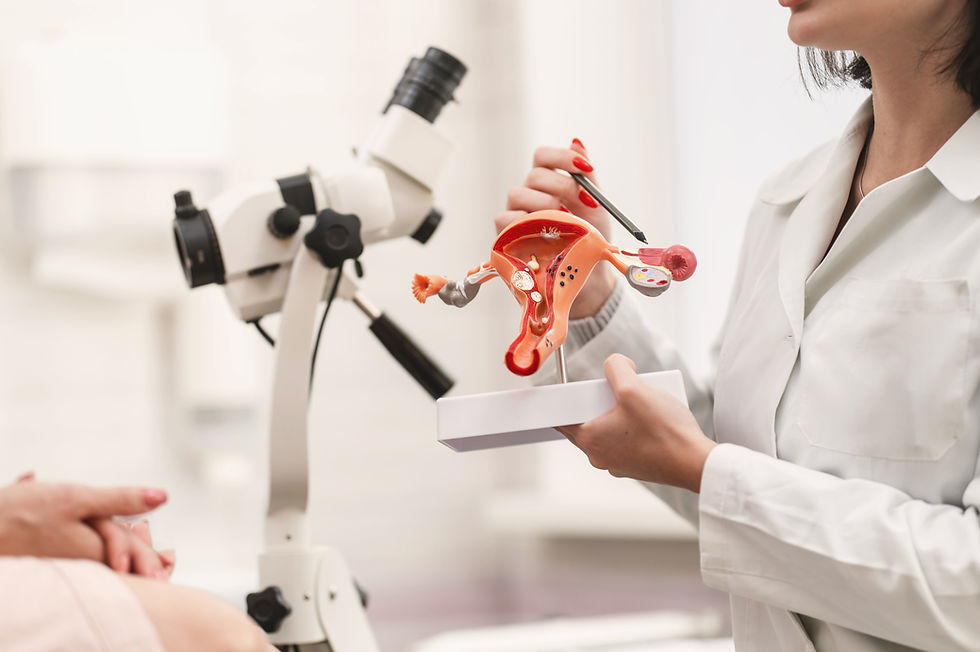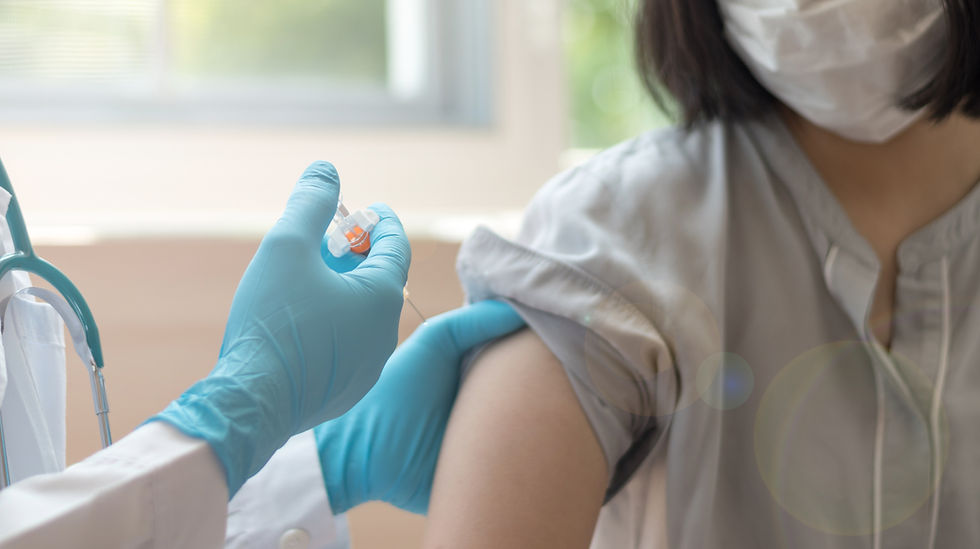Why a Colposcopy is Key in Managing HPV Risk
- athenawomenspecialist
- Sep 2, 2025
- 3 min read
Updated: Oct 1, 2025

Receiving an abnormal Pap smear or a positive HPV test result can be a source of significant anxiety. However, understanding the next steps is your greatest tool for maintaining your health. A colposcopy is a vital procedure in the proactive management of HPV-related risks, offering clarity, early detection, and peace of mind.
1. Understanding HPV and Its Risks
Human Papillomavirus (HPV) is an extremely common virus, with most sexually active individuals encountering it at some point. While the body’s immune system often clears the virus naturally, certain high-risk strains can persist. This persistence can lead to changes in the cells of the cervix (known as dysplasia), which, if left undetected and untreated, can progress to cervical cancer over many years. The key to preventing this progression is vigilant monitoring and timely intervention.
2. How Colposcopy Helps Manage HPV Risks
A colposcopy is not a treatment; it is an effective diagnostic tool. It allows your gynaecologist to closely examine your cervix, vagina, and vulva for any abnormal areas that are not visible to the naked eye. By identifying the accurate location, size, and pattern of these changes, a colposcopy provides a critical assessment. This information is essential for determining if and what type of treatment is needed, effectively stopping potential problems long before they can develop into something more serious.
3. When Doctors Recommend a Colposcopy
Your doctor may recommend a colposcopy if:
Your Pap smear test results are abnormal (e.g., ASC-US, LSIL, HSIL).
Your HPV test is positive for a high-risk strain, especially if persistent.
You have unexplained bleeding after intercourse.
Your cervix looks unusual during a routine pelvic examination.
This recommendation is a precautionary measure, not a diagnosis of a serious condition.
4. What Happens at a Colposcopy?
Performed in your gynaecologist’s office, a colposcopy is a straightforward procedure that takes about 10-15 minutes. Similar to a Pap smear, you will lie on an examination table while a speculum is gently inserted to view the cervix. Your doctor will use a colposcope—a special magnifying instrument that stays outside the body—to illuminate and magnify the view of the tissues. A mild solution may be applied to the cervix to highlight any abnormal areas. If necessary, a small tissue sample (a biopsy) may be taken for further laboratory analysis. While you may feel a slight pinch or cramp during a biopsy, the procedure is generally well-tolerated.
5. After the Colposcopy – The Next Steps
If a biopsy was taken, the sample will be sent to a lab. Your doctor will discuss the results with you, typically within one to two weeks. These results will guide the next steps:
Normal results: Often mean you can return to your regular screening schedule.
Low-grade changes: Usually mean continued monitoring, as the changes may resolve on their own.
High-grade changes: May indicate a need for a simple treatment to remove the abnormal cells, preventing them from progressing.
6. Reducing Your HPV Risk Beyond Colposcopy
A colposcopy is one part of a comprehensive health strategy. You can further reduce your risk by:
HPV Vaccination: Getting vaccinated protects against the most common high-risk HPV strains.
Regular Screening: Adhering to recommended Pap and HPV test schedules is crucial for early detection.
Safe Practices: Using condoms can reduce, though not eliminate, the risk of transmission.
Smoking Cessation: Smoking weakens the immune system and is linked to persistent HPV infection.
7. Where to Get a Colposcopy in Singapore
For women in Singapore seeking professional care, Athena Women's Specialist is a clinic dedicated to women’s health. Under the care of Dr. Ida Ismail-Pratt, the clinic provides a compassionate and professional approach to colposcopy and the management of HPV-related conditions. Dr. Ida’s experience ensures that you are in skilled and caring hands, with access to the diagnostic techniques in a supportive environment.
8. Choosing a Gynaecologist Experienced in Colposcopy
The accuracy of a colposcopy is highly dependent on the skill and professionalism of the gynaecologist. An experienced women’s health specialist like Dr. Ida Ismail-Pratt at Athena clinic in Singapore is trained not only in performing the procedure but also in accurately interpreting the findings and developing an individualised management plan. This experience helps reduce uncertainty and ensures you receive care appropriate for your condition.

9. Stay Proactive with Colposcopy
View a colposcopy not as a daunting procedure, but as an important, proactive step in safeguarding your long-term gynaecological health. It is your first line of defence, turning uncertainty into a clear, actionable path forward.
Take control of your health today. Schedule a consultation with Dr. Ida Ismail-Pratt and the team at Athena Women's Specialist to discuss your needs and find reassurance in professional care.






